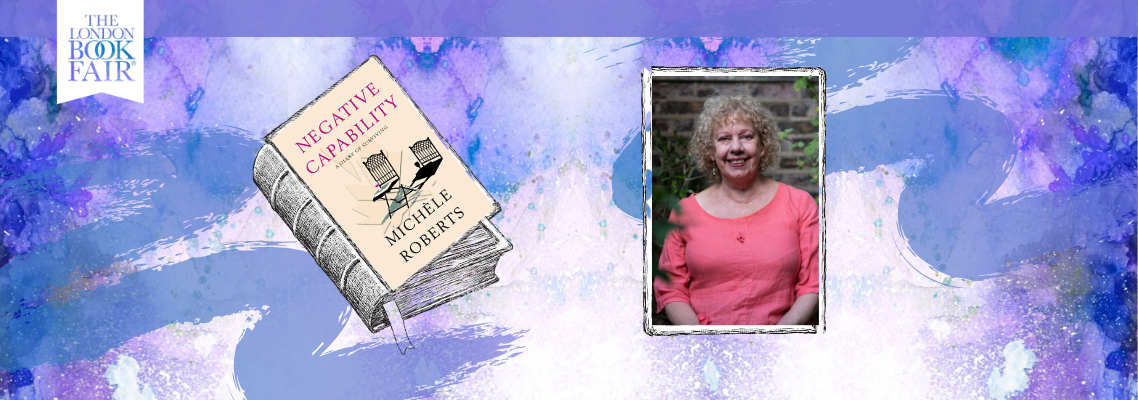“Yesterday ended in disaster. Very late at night, I decided to write down everything that had happened, the only way I could think of coping. So here goes.”
Hands up if at some point in your life you have written a diary. A friend you can count on, a diary promises no judgement, understanding and the never-ending lend of a good ear. A diary also helps you through whatever you’re facing in life, happy to be home to your streams of thoughts, anxieties, woes and celebrations. And this is the rather honest approach that Michèle Roberts’s new book, Negative Capability: A Diary of Surviving, takes.
In the wake of rejection, something we are all acquainted with, Michèle dives into her torrents of thoughts, as a means of coping, and invites her readers along for the ride. Deciding to keep a journal of her life, she writes a frank, raw account that is bound with wit, warmth and sensitivity.
In just under 300-pages we experience an entire year of her life. We sit with Michèle as she delights in her garden (secretly envious of her apparent green fingers and ability to keep plants alive), we listen to her lows, and witness her rejections and frustrations. With every word, line and paragraph the diary unfolds and we learn more about her family, her writing and her personality – which oozes from every page.
Rejection, though, can knock anyone down and as time moves on it takes us all with it. We accompany Michèle as she spends moments with friends, we witness her France – picturing in our mind’s eye her rustic French dwelling and the collaborative milieu she’s apart of – we relax on breaks abroad with her, we relish in the mouth-watering food she describes, we sip multiple glasses of chilled white wine together and slowly we navigate the tough road to inner peace.
In the end, Michèle is in a better place both internally and externally, and no doubt partially due to the therapeutic process of writing combined with the healing effects of time. And, as her reader who she has confided in, you’re left inspired to find a renewed sense of living yourself.
You’re also left admiring her strength, character and creativity. The warm and wholesome feeling that Michèle gives you through her writing paints a picture as to why she has ample friends. Here is a strong independent woman who while seemingly alone is in no way lonely.
Her account takes a hugely painful subject and delves into it. Her frankness gives this book an energising insight into survival, and her cleverly candid writing elevates the seemingly mundane to new heights. She describes the everyday; from her novel rewrites and gardening to what she eats, keeping you captivated with every passing thought.
Which brings us onto her intriguing title. Negative Capability was first coined by John Keats when writing to his brothers in 1817: “I mean Negative Capability, that is when a man is capable of being in uncertainties, Mysteries, doubts, without any irritable reaching after fact and reason.” For Michèle, who admits in her mid-twenties, when she first read this passage, she couldn’t appreciate it as she longed to be in complete control of herself. Now, though, she uses it as a strategy for living calmly in the face of uncertainty. And this notion is so perfectly poignant for today’s lockdown climate.
For us, Michèle’s intelligent and vivid memoir was ultimately like meeting up with an old friend. A comforting experience that leaves you feeling content with plans to do it all over again. Until then, Michèle, au revoir!

